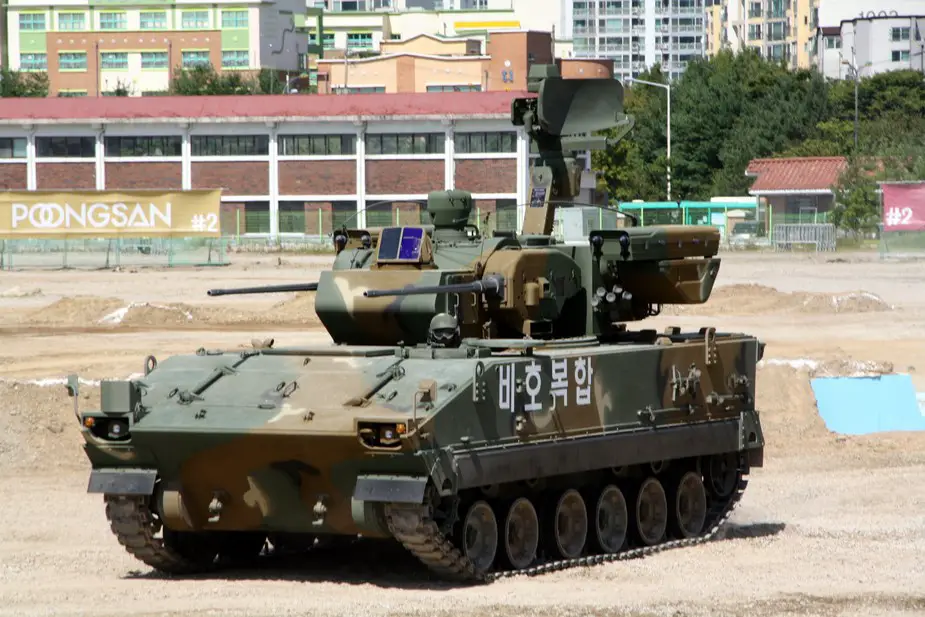Breaking news
South Korean sale of K-30 Biho anti-aircraft systems to India threatened.
South Korea should sign contract with India for a 3 trillion won (around $2.66 billion) sale of K-30 Biho anti-aircraft systems but this operation might be compromised by a "foreign interference", according to The Korean JoongAng Daily.

K-30 Biho anti-aircraft system at DX Korea 2018 (Picture source: Army Recognition)
In October 2018, the Indian army selected the Biho, a Korean-built anti-aircraft system, as a candidate for acquisition after a bidding process involving several foreign arms makers as part of a recent plan to upgrade its air defenses. The weapon in question - the K-30 Biho - was developed by Korea’s Agency for Defense Development in 2013 as a short range anti-aircraft and anti-missile system. In the bidding process, it beat out an upgraded Tunguska-M1 model built by the Russian state-owned defense company Almaz-Antey and the Pantsir missile system from the Russian KPB Instrument Design Bureau. The K30 Biho was judged the most capable of dual purpose use as an anti-missile and anti-aircraft defense system.
If a final contract is signed for the acquisition of the K-30 Biho - paired with the surface-to-air Chiron missile developed by the Korean aerospace manufacturer LIG Nex1 - India plans to deploy the system by 2020 along a point on its border with Pakistan where five brigades are stationed.
The bidding was first officially announced in 2013, and the candidate weapons were evaluated throughout 2015 and tested in 2017. The Korean defense industry was eyeing the Indian market as a chance to move away from domestic sales to exports. The contract involves exporting 104 K-30 Biho systems, 97 ammunition carriers, 39 command vehicles, 4,928 missiles and 172,260 rounds of ammunition, bringing the contract’s total value to 2.5 to 3 trillion won.
However, this contract appears to be threatened by a dissatisfied competitor who argues that the Indian military had not properly tested the weapon. The competition would then have been biased. Hence the request to re-start the bidding process, a move that is supported by some pro-Russian forces within the Indian government.
Faced with the prospect of its export plans to India falling apart, the Korean Defense Ministry and defense contractors have sent their own letters to the Indian Defense Ministry requesting that it streamline the contract negotiation process. The Korean government is also considering dispatching one of its officials to New Delhi to apply some pressure, The Korean JoongAng Daily reports.





























